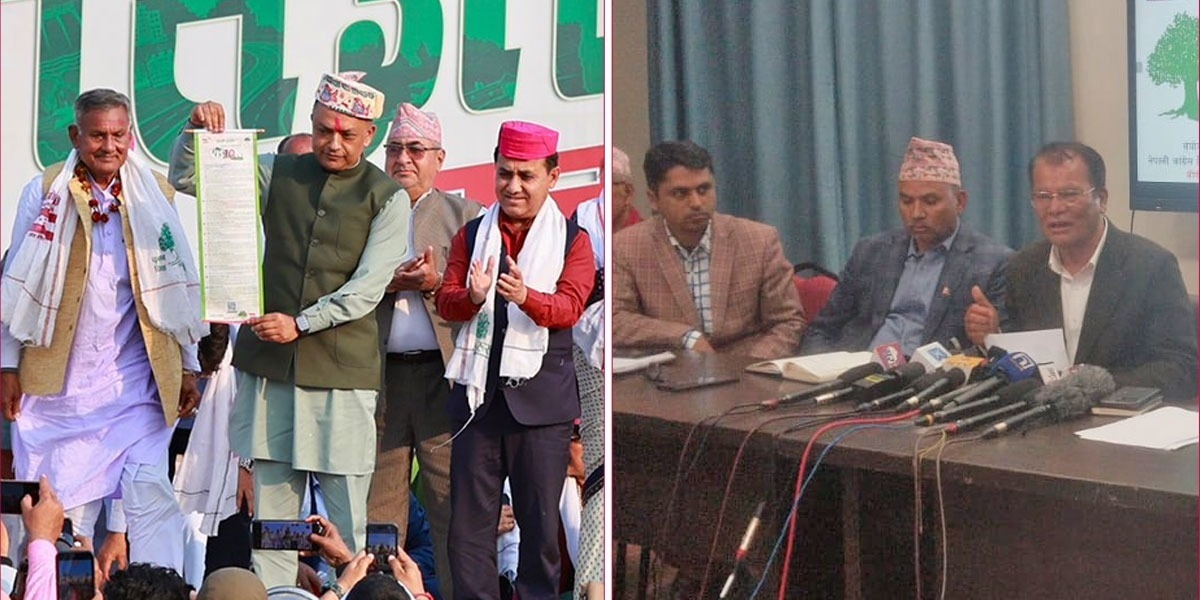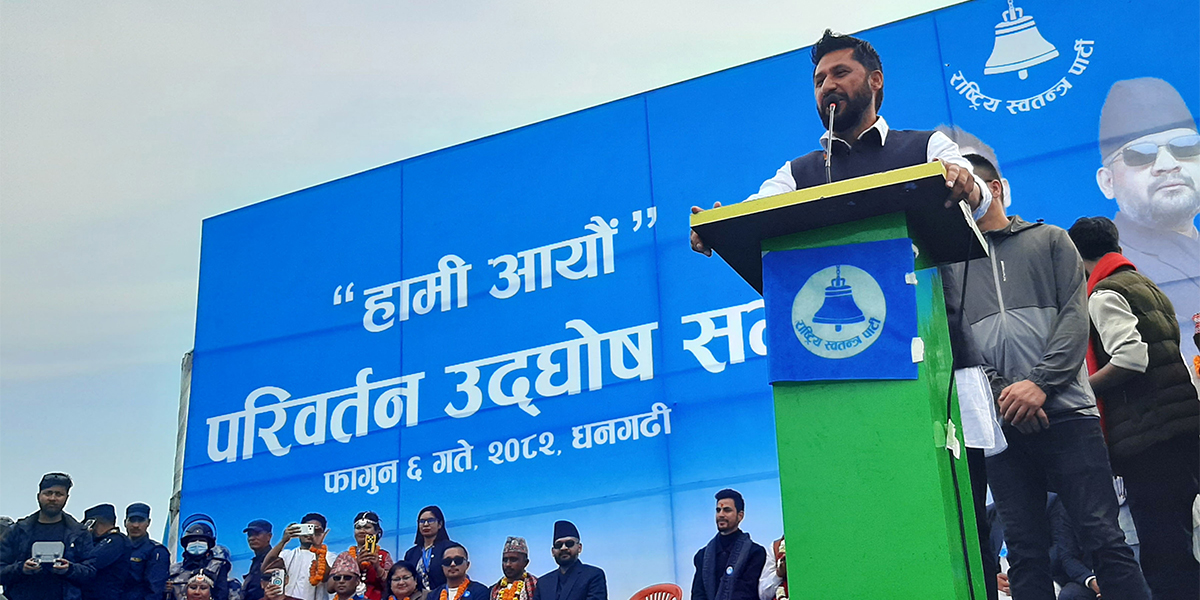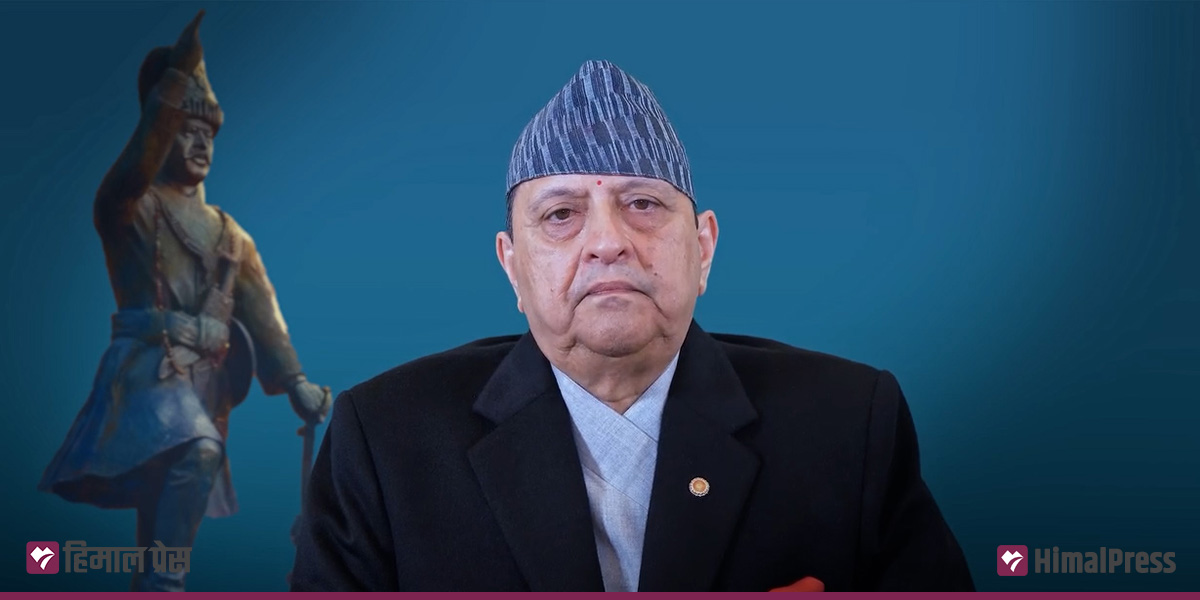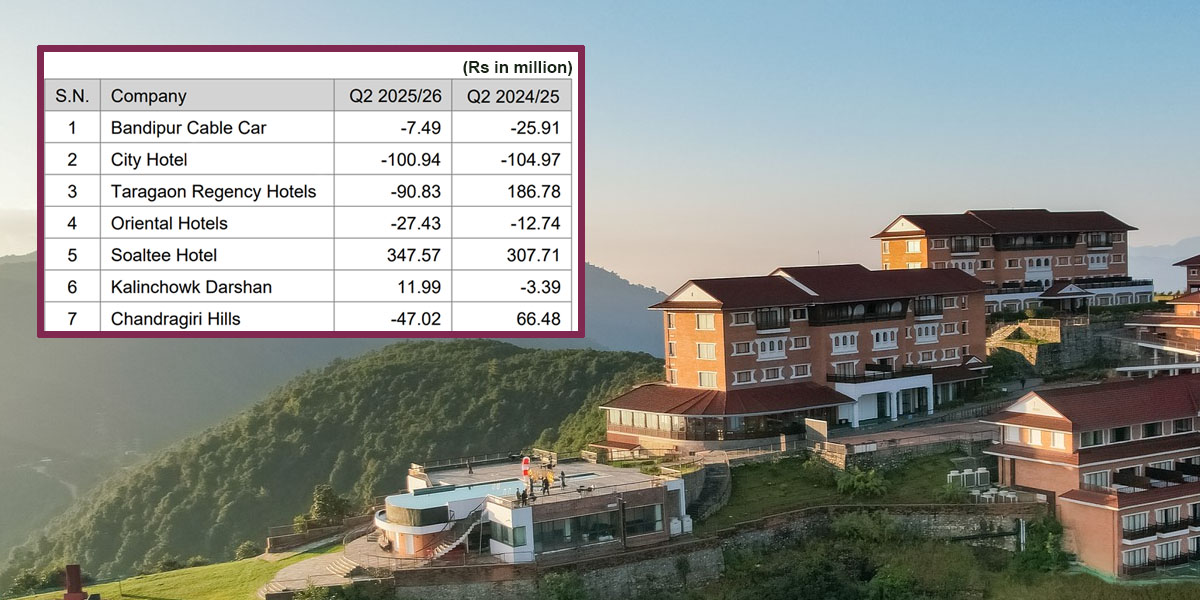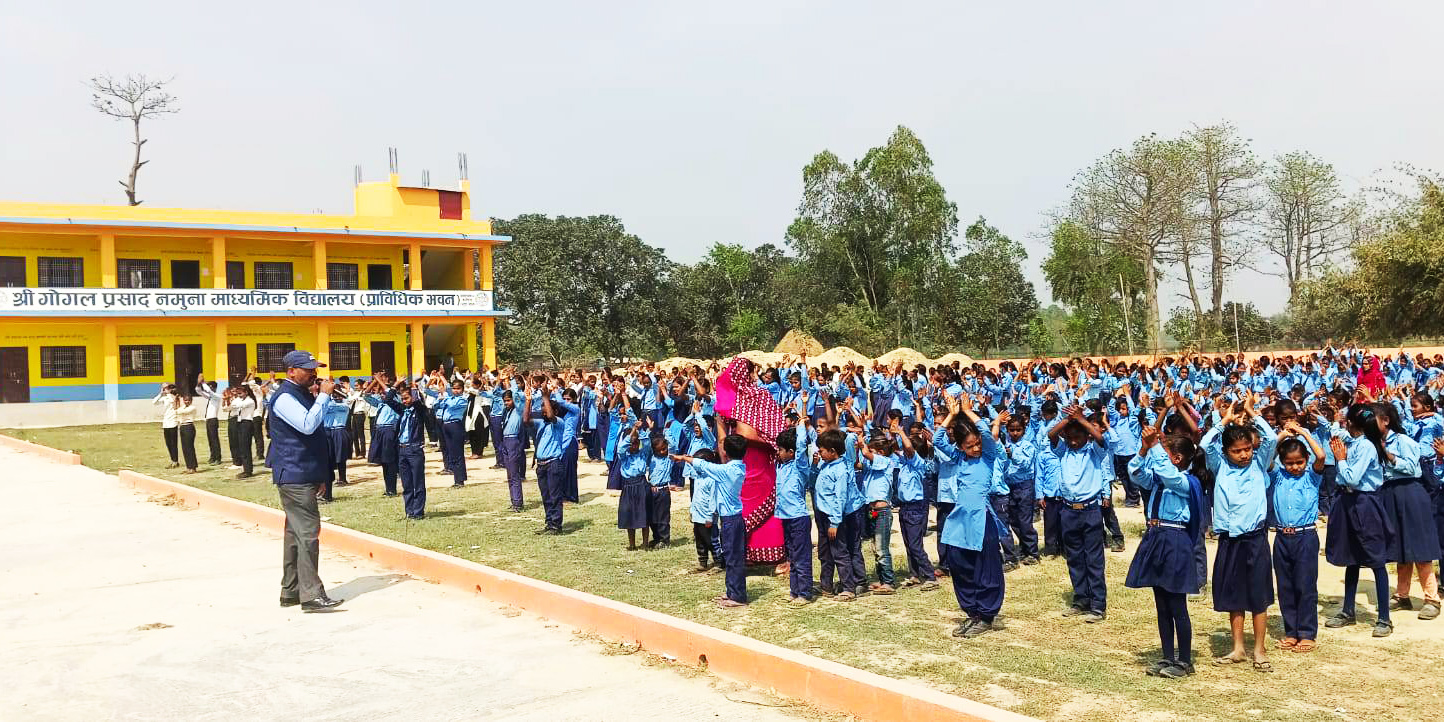 Morning prayers underway at Gagol Prasad Secondary School of Dhanusha. (File Photo/HimalPress)
Morning prayers underway at Gagol Prasad Secondary School of Dhanusha. (File Photo/HimalPress)
KATHMANDU: Community school teachers are still not receiving their salaries on a monthly basis. While some local governments have managed to provide salaries every month from their resources, many community school teachers receive their salaries every four months only.
Teachers have long been complaining that irregular salaries have been making it difficult for them to manage household expenses. However, a few teachers claim that receiving salaries every four months helps with financial planning for larger expenses.
The Ministry of Education, Science, and Technology has issued circulars urging local governments to ensure monthly salary payments to community school teachers. However, this directive has not been implemented. Local government representatives argue that regular monthly payments would be possible only if the federal government disbursed funds every month.
On December 2, the Education ministry requested the Ministry of Federal Affairs and General Administration to make the necessary arrangements to ensure that community school teachers are paid every month. The federal affairs ministry subsequently wrote to all 753 local governments to ensure monthly salary disbursements. “Unless a teacher’s salary is legally withheld due to specific provisions, salaries must be disbursed monthly,” the circular stated.
According to Education Minister Bidya Bhattarai, the government spends Rs 100.6 billion annually on teacher salaries. A total of 224,972 community school teachers are on the government’s payroll.
Laxmidevi Pandey, chairperson of the National Association of Rural Municipalities, said that local governments could provide monthly salaries to school teachers if disbursements from the finance ministry were made accordingly. Similarly, Municipalities Association of Nepal President Bhim Dhungana said that while most municipalities are trying to make monthly payments, delays often occur due to procedural lapses or teachers’ preference for lump sums.
While some teachers, like Rajkumar Gole from Kavre, find monthly payments practical for managing living expenses, others, accustomed to receiving salaries every fourth months, feel it offers a larger sum for significant expenses. Teachers like Saraswati Pandey from Dhunibesi Municipality, who has been receiving a monthly salary, say that it has practical advantages. “If teachers are not paid monthly, there will be constant stress about managing expenses for four months. Most teachers do not have jobs near their homes, forcing them to live in rented accommodations. Monthly rent payments and essential groceries become difficult to manage without regular salaries,” she added.
Ministry of Finance spokesperson Mahesh Bhattarai said the ministry is not an obstacle to providing monthly salaries to teachers. “Some teachers themselves prefer salary payments every four months,” he said. “If they were to request monthly payments, there would be no problem from the finance ministry.”
Amendments have been proposed to the School Education Bill under consideration in the lower house for the monthly disbursement of salaries for school teachers.
In January 2017, the Education Ministry issued a circular through a secretary-level decision to provide monthly salaries to teachers. The then-Education Department had instructed education offices and regional education directorates to provide monthly salaries to teachers who had been receiving payments every four months. However, the directive could not be implemented.
“It could not be implemented then because funds were not released to local governments on time,” said Narayan Prasad Gautam, the headmaster of Ranidevi Secondary School in Kathmandu. “Kathmandu Metropolitan City had tried to pay our salaries every month, but it could not be done as funds were not released by the federal government.”
According to Gautam, Kathmandu Mayor Balen Shah has now established a reserve fund of Rs 240 million for teachers’ salaries. “But there are still suspicions about whether the money will arrive,” he added.


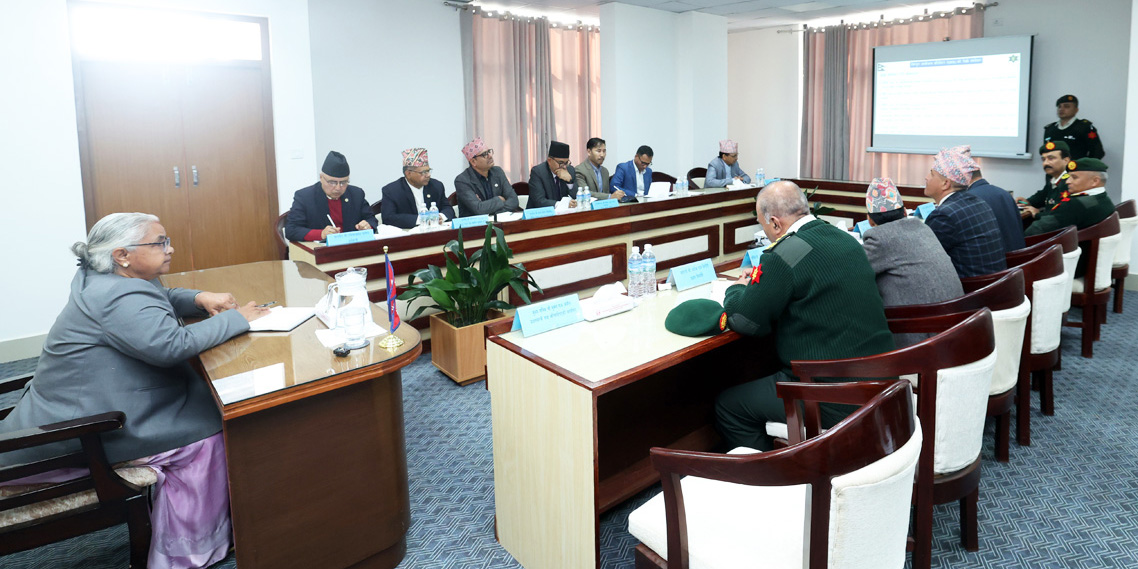

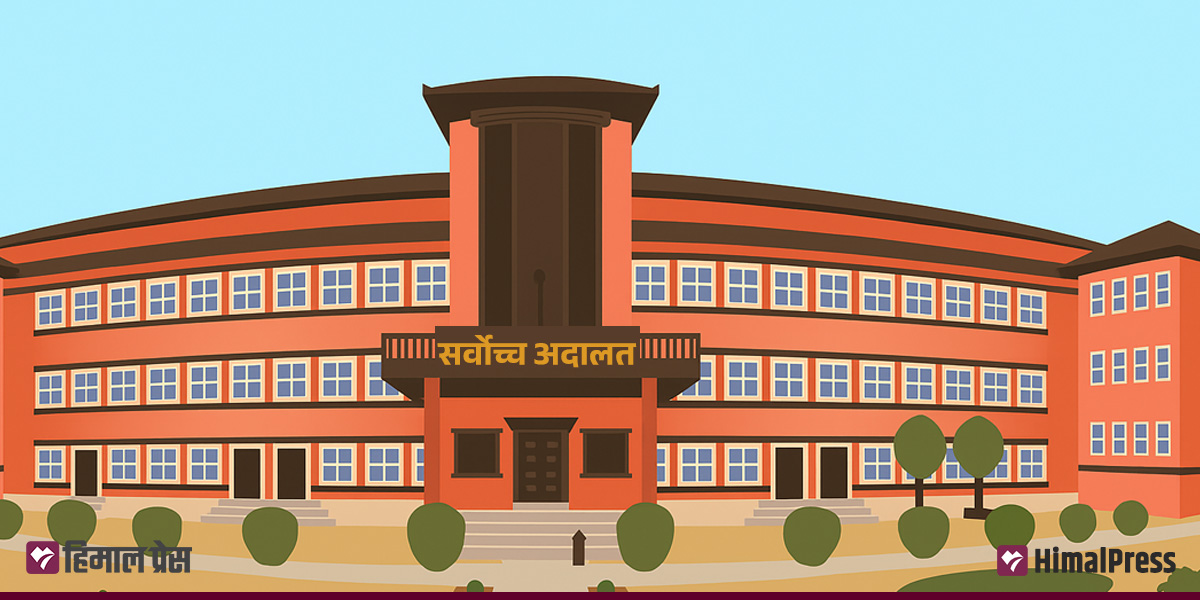


![Maha Shivaratri being celebrated across the country [With Pictures]](https://en.himalpress.com/wp-content/uploads/2026/02/HRB_KTMImage2026-02-15at7.37.40AM1.jpg)
